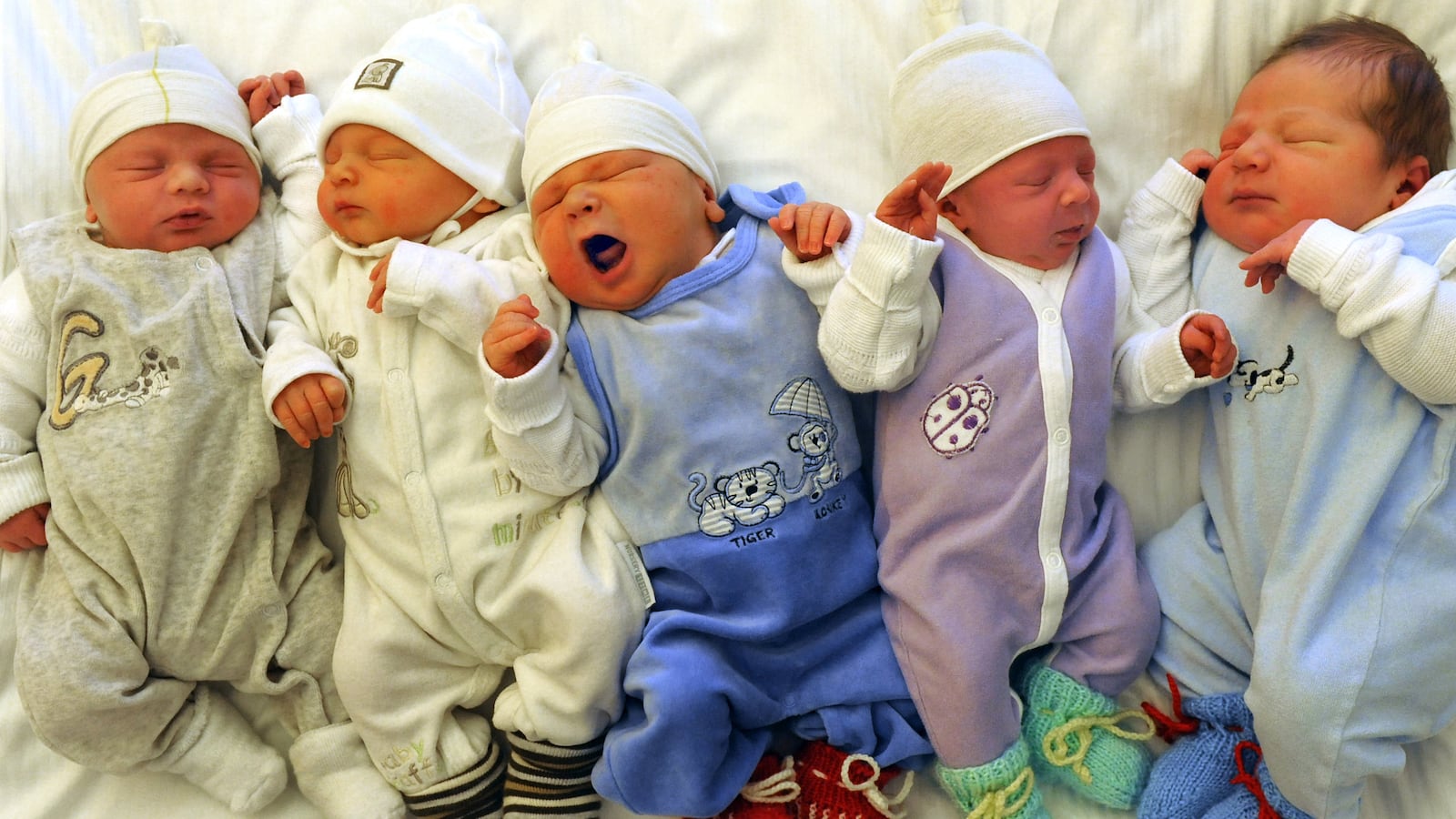Yes, conservatives should think of birthrates as an important tool of government. Robert W. Patterson, author of the guest post below, pushes back against libertarians who eschew birthrates in the name of liberty.
It’s not hard to illustrate the variously attributed proverb, “Better to remain silent and be thought a fool, than to speak and remove all doubt.” Last week, Forbes contributor Paul Hsieh suggested Jonathan Last, Joel Kotkin, Harry Siegel, and Ross Douthat aren’t freedom-loving Americans because the respected thinkers want to boost a key growth indicator: birthrates. It seems their pro-natalism offends Hsieh’s notion of liberty.Hsieh’s rhetoric defending “the freedom of parents to have zero, one, two, or five children” sounds magnanimous, but the Denver libertarian zealot reveals that he has no idea what he is talking about, from social policy to economics.The cofounder of Freedom and Individual Rights in Medicine seems unaware that the United States has been anything but neutral on fertility, as public policy has chipped away at our formerly high birthrates for four decades. Indeed, today’s upside-down demography is the fruit of three heavy-handed policies that triggered immediate and permanent declines not only of birthrates but also of a key correlate of fecundity, marriage rates. The triple-witching spell was cast by Richard Nixon’s massive birth-control crusade through Title X of the Public Health Services Act and Title XIX (Medicaid); the Supreme Court’s Roe v. Wade decision, which sanctioned abortion-on-demand and trashed the hallowed custom of shotgun weddings; and the states’ imposition of no-fault divorce, which downgraded the marital bond to a precarious “at-will” relationship.
Nor is Hsieh apparently familiar with the New Deal-postwar era, where public policy worked in the opposite direction. Both mid-century marriage and baby booms were neither historical accidents nor merely consequences of World War II. As social historian Allan Carlson maintains, the then-modest Social Security system encouraged the Greatest Generation to form child-rich families. Likewise, the late Georgetown economist Leslie Whittington has established a causal link between the pro-family Revenue Act of 1948 -- particularly the increased value of the personal and dependent exemption -- and the Baby Boom.The healthy postwar pattern actually inverts Hsieh’s claim that economic growth is the antidote to anemic fertility. Between 1950 and 1970, robust marriage and birth rates cultivated a huge expansion of the middle class, as the number of households of married parents with children grew by a whopping 6.7 million, or 36 percent. (For comparison purposes: the number of “married . . . with children” households has lay dormant since the Nixon presidency, even falling by 2 million since 2001.) Like clockwork, this policy-shaped demography delivered hefty dividends not only at the time, but also during the “Echo Boom” of the 1980s and 1990s, by generating natural demand for housing and the production of goods and services, not to mention funding earned-benefit entitlements.
Ignoring history, Hsieh then offers two more faulty prescriptions for sub-par fertility. He wants higher levels of immigration, as if shifting people across borders can substitute for natural population growth. More problematic is his call for privatizing Social Security. When Chile privatized Social Security in 1981, the South American country enjoyed a Total Fertility Rate (TFR) of 2.7 births per woman. Today, her TFR is 1.9 children. If the U.S. followed suit, economist John Mueller estimates that our rate would plummet by 0.5 children. At the root of Hsieh’s misdiagnosis is his libertarianism. In his Ayn Rand fantasy world, “freedom” trumps everything, including civilization, nation, patriotism, industry, and culture. Such a notion would surprise Thomas Jefferson, whose understanding of the “pursuit of happiness” in the Declaration of Independence was essentially linked to marriage and children, according to Rutgers historian Jan Lewis. As would Hsieh’s promise that freedom guarantees a “thriving economy” shock Adam Smith. In The Wealth of Nations, the moral philosopher observed: “The most decisive mark of the prosperity of any country is the increase in the number of its inhabitants,” which he linked to “a numerous family of children.”
Conservatives should leave the anti-family Hsieh on his Rocky Mountain High and heed the voices of leaders who view statecraft as soulcraft. Like Theodore Roosevelt, who identified having “plenty of children” as the most important democratic virtue and presciently warned that the nation “will die out unless the average family contains at least three children.” Indeed, the Rough Rider would not only give Last, Kotkin, Siegel, and Douthat the bully pulpit but also encourage us to reverse the family-life disincentives enshrined in law during the early 1970s. If we did that, even libertarians would be better off.






